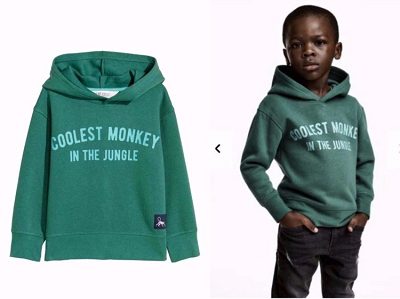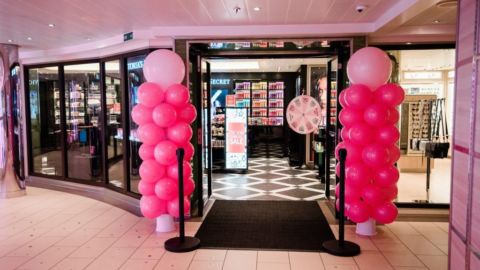 Whenever an offensive (or sometimes just plain tasteless) product or ad campaign makes it out into the market, the same question is inevitably raised on social networks: “In all the design meetings and during all the approval processes, didn’t somebody notice that this would be problematic?”
Whenever an offensive (or sometimes just plain tasteless) product or ad campaign makes it out into the market, the same question is inevitably raised on social networks: “In all the design meetings and during all the approval processes, didn’t somebody notice that this would be problematic?”
Even with an acknowledgement that hindsight is always 20/20, it’s a legitimate question when in recent years we have seen:
- H&M use a black child to model its hoodie emblazoned with the slogan “Coolest Monkey In The Jungle”;
- Zara release a top decorated with a yellow Star of David in a way that seemed to trivialize the Holocaust; and
- Pepsi produce a big-budget TV commercial featuring Kendall Jenner (quickly pulled after protests) seeming to imply that all that’s needed to stop a potentially violent protest is for a celebrity to offer a cop a cold soda.
I could go on, but you get the idea.
Obviously there is no one single thing that will prevent offensive items from getting out into the world. A recent New York Times article lays out many of the challenges companies face, particularly those in the “fast fashion” world. The combination of producing items at an accelerated pace, and selling in multiple countries where there may not be local people attuned to cultural sensitivities, is almost guaranteed to create problems.
Another good (if cynical) point made in the article is that in a highly competitive environment, brands are constantly looking for any way to stand out from the crowd — even if standing out means a potential backlash. These companies may figure that a clickbait-ready controversy is worth almost any amount of trouble — if it raises the profile of the product and the brand. As the Times article’s writer Tiffany Hsu noted, “Many brands develop a cavalier attitude: Churn out products now, ask forgiveness later.”
C-Level Leadership Needed
So what can (and should) brands and retailers do? It almost goes without saying, but the first step needs to be unequivocal direction from the top about what the company’s policies are with regard to cultural, racial and sexual sensitivities. Usually this task falls to the CEO, who needs to both talk the talk and walk the walk. In an interview I did with branding expert Deb Gabor after last year’s Charlottesville neo-Nazi march, she said:
“I always say the CEO is the primary steward of the brand, so he or she needs to represent the brand’s point of view. At the same time they manage the complex relationships among the customers, the brand itself and other stakeholders, including financial supporters. But the CEO has to be the leader — otherwise there’s a big disconnect.”
In the longer term, companies need to make a real commitment to diversity — one that is more than just tokenism. Simply having people in the room that represent a wider range of backgrounds and life experiences is likely to go a long way toward avoiding the next embarrassing social media flare-up.
In the New York Times article, Hsu quoted Angel Sinclair, founder of the advocacy group Models of Diversity: “It’s so easy to avoid this kind of controversy. If you care about being culturally sensitive, just be more culturally inclusive of talent and managers in the business.”
Of course, achieving true diversity is easier said than done. It requires companies to add a serious, long-term commitment to inclusiveness to all the other factors that go into recruiting, hiring and promotion.
Is making these efforts worth it? I’d have to say that they are. In recent weeks we’ve been seeing the power that movements like #MeToo, March For Our Lives and Black Lives Matter are having. To take just one example, after Parkland shooting survivor David Hogg was mocked by conservative commentator Laura Ingraham, a Twitter-fueled boycott of her advertisers led to many of them dropping her Fox News show.
In a perfect world, brands would do whatever is necessary to avoid marketing offensive products because it’s the right thing to do. But if they act more out of fear than a sense of moral righteousness, the liberal in me is OK with that too.













